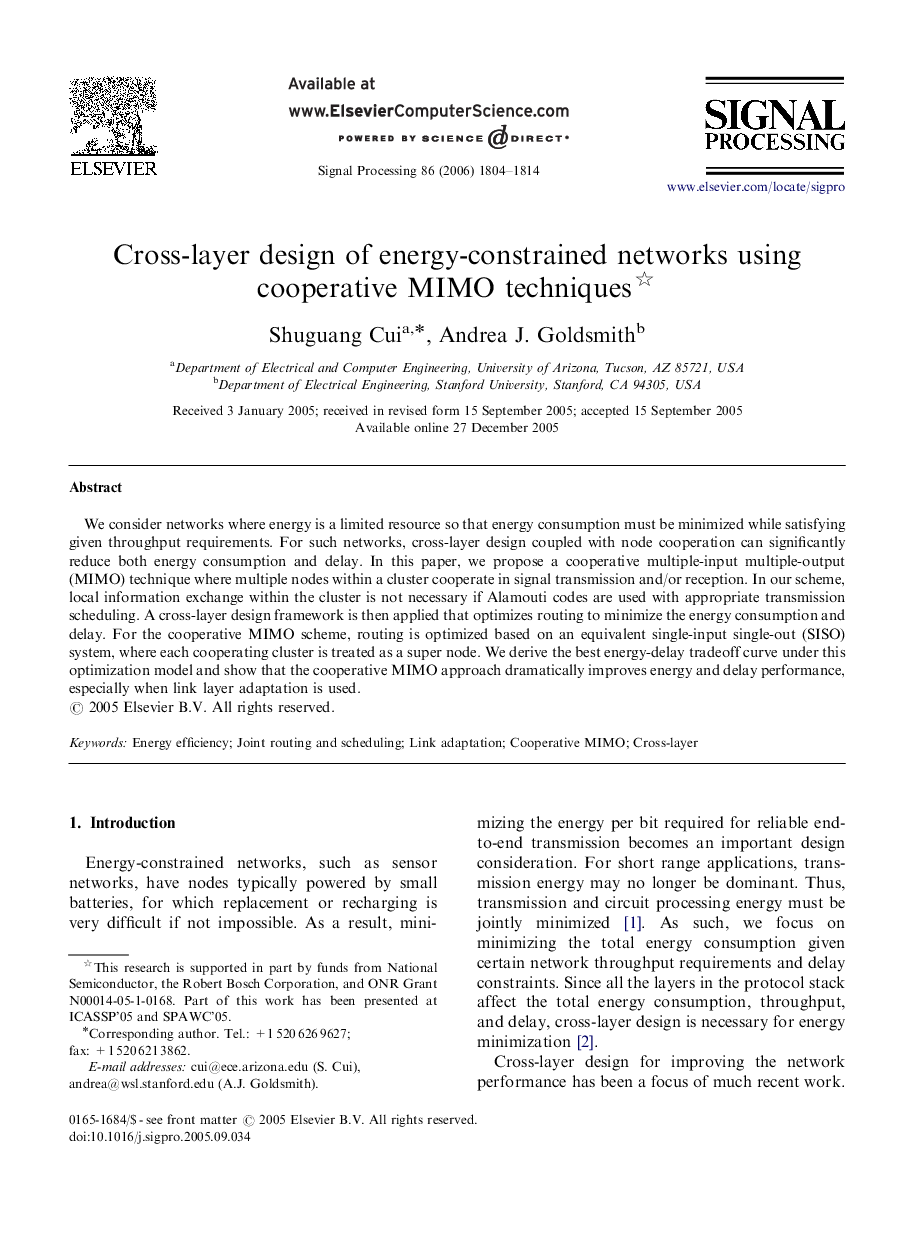| Article ID | Journal | Published Year | Pages | File Type |
|---|---|---|---|---|
| 567353 | Signal Processing | 2006 | 11 Pages |
We consider networks where energy is a limited resource so that energy consumption must be minimized while satisfying given throughput requirements. For such networks, cross-layer design coupled with node cooperation can significantly reduce both energy consumption and delay. In this paper, we propose a cooperative multiple-input multiple-output (MIMO) technique where multiple nodes within a cluster cooperate in signal transmission and/or reception. In our scheme, local information exchange within the cluster is not necessary if Alamouti codes are used with appropriate transmission scheduling. A cross-layer design framework is then applied that optimizes routing to minimize the energy consumption and delay. For the cooperative MIMO scheme, routing is optimized based on an equivalent single-input single-out (SISO) system, where each cooperating cluster is treated as a super node. We derive the best energy-delay tradeoff curve under this optimization model and show that the cooperative MIMO approach dramatically improves energy and delay performance, especially when link layer adaptation is used.
